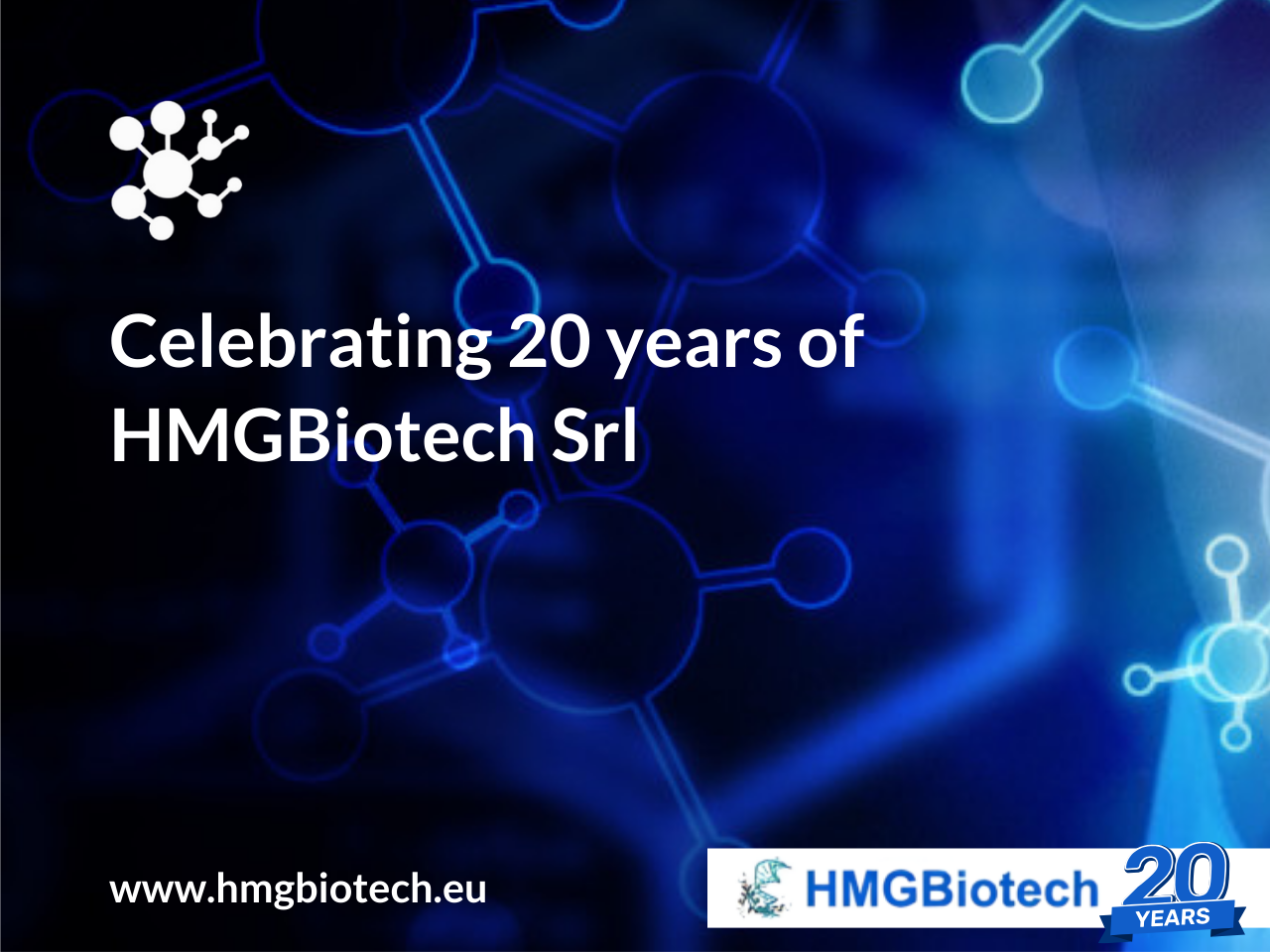In 2025 HMGBiotech Srl proudly marks its 20th anniversary, a milestone that reflects two decades of dedication to advancing research on HMGB1 protein.
Here is an overview of the history of HMGB1 protein during the last 20 years:
- 2002-2004: HMGB1 as a DAMP
HMGB1 identified as a DAMP (Damage-Associated Molecular Pattern) with a central role in the inflammatory response and innate immune system. Studies in sepsis reveal HMGB1 as a late mediator of inflammation. - 2005-2010: Release mechanisms and receptors
Understanding the mechanisms of HMGB1 release from necrotic and immune cells. Identification of key receptors (TLR4, RAGE) involved in signaling pathways.
- 2011-2015: Redox states and functional regulation
Characterization of HMGB1’s distinct redox isoforms (reduced, disulfide, and oxidized), each with specific functions (pro-inflammatory, chemotactic, anti-inflammatory). Research expands into the role of HMGB1 in the tumor microenvironment and metastasis.
- 2016-2018: HMGB1 in regeneration and cancer
HMGB1’s role in tissue regeneration, with implications for regenerative medicine. Growing interest in HMGB1’s involvement in oncology.
- 2019-2023: Biomarker and therapeutic target
HMGB1 recognized as a biomarker for early diagnosis in cancer, sepsis, and neurodegenerative diseases. Development of HMGB1-targeting therapies for inflammatory and oncological diseases.
This timeline illustrates how HMGB1 has transitioned from being a simple nuclear protein to a central player in inflammation, cancer, and tissue regeneration research.
Discover more about our company: https://www.hmgbiotech.eu/hmgbiotech/
Contact us for your pre-sales questions about HMGB1

